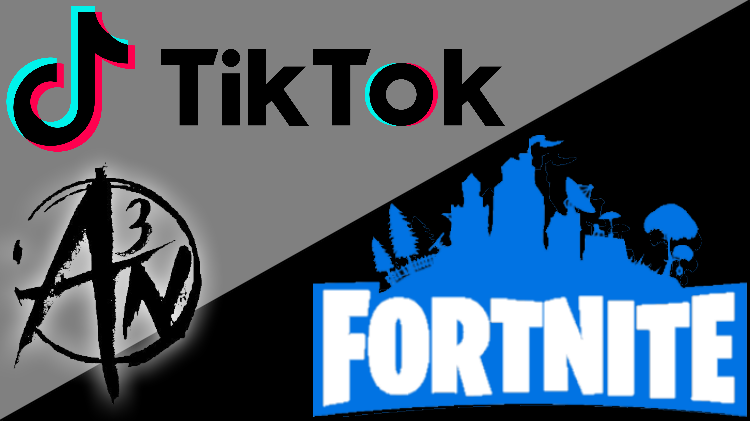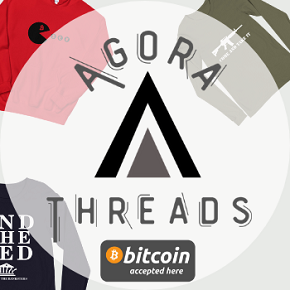
The Fortnite and TikTok bans prove Konkin right about corporations
“In an agorist society, division of labor and self-respect of each worker-capitalist entrepreneur will probably eliminate the traditional business organization – especially the corporate hierarchy, an imitation of the State and not the Market. Most companies will be associations of independent contractors, consultants, and other companies. Many may be just one entrepreneur and all his services, computers, suppliers and customers. This mode of operation is already around and growing in the freer segments of Western economies.”
– SEKIII, New Libertarian Manifesto
–
If you’ve been on the mainstream clearnet for any length of time the past few months, you know about the feud between Fortnite and both Apple and Google, and the potential ban of TikTok, from a fight between the Chinese and US governments. In that spirit, I thought it would be prudent to write a piece on how Konkin was 100% correct in his assessment of the relationship between corporations and the state, and how the incestuous relations make everything worse for everyone. So in order to get started, let’s first discuss Fortnite.
Fortnite is a 100 player “Battle Royale” game where players compete in order to dwindle down to one player or team, in order to win a “Victory Royale”. Not only has this game rocketed to popularity in the past couple years, but people who stream it have also rocketed to popularity, bringing the brand a ton of attention, and making billions of dollars for the corporation involved, Epic Games. These people also own a popular video game asset and programming technology called the Unreal Engine. So it’s understandable that if another entity could get its cut of this money, they would want to maximize their cut. This kind of thinking is what drove Google Play and Apple iTunes to take an industry-standard 30% cut of profits on all sales made through apps downloaded on their app stores, and block the applications that have apps on their store from supporting native payment systems (when they’re not being outright hypocrites about it – many cases). It lets them constantly get their 30%, whether or not it’s actually reasonable that they request such an amount.
This 30% is a carryover amount from previous standards in retail, accounting for stocking costs, property costs, taxes, employees, and more, all who maintain physical storefronts, and therefore have a lot more responsibilities than does an app store. Granted, Google and Apple both have overhead for their businesses too. They have servers to maintain, employees for quality and security concerns to employ, lawyers, customer service requests to field, and more. But they’re not the only ones who have overhead, and realizing this — and realizing the amount of money that goes to app stores they’re on — is what led Epic Games to include an alternative payment system in one of their latest updates, whereby money could immediately go to Epic, and because of that, they were running a limited time promotion to get cheaper access to the same things that can be bought with the official app integrations.
Because of this, both Apple and Google alleged that they had violated contract, and banned them wholesale from both app stores. Epic games has filed a lawsuit in response, claiming that Apple and Google jointly form a duopoly, crushing any competition, and preventing third party developers from being able to break into the market. Apple and Google’s countersuits claim that Epic Games definitely should have been banned because they violated contract. But the question is, what kind of power do third party app developers have?
This is where an unrelated legal situation comes up with regard to TikTok. TikTok is a popular social media and video creation app which allows users to pair their footage with popular music, other people’s audio, and direct copies of the video next to their own called a “duet”. It started in China and rocketed to popularity in a global audience when they got offices in other countries, and is now one of the most popular social networking and content creation apps. But this didn’t last long, due to the interference between the two major economic powers in the world as it stands.
It all started with concerns that servers based in Beijing were being used by the Chinese government to siphon data toward them, and violate US national security interest by spying on US citizens remotely. There were many concerns, and the secretive algorithm which is not open source was the subject of constant suspicion, if not outright rejection by many people in America. That, and the fact that a huge investor in the company is Tencent, and a long series of security concerns with companies affiliated with Tencent have already come up, leading to a wide suspicion that the app was being used as a method of subverting American politics. There were also concerns that tracking and biometric data were being sent directly to China (per their law). What’s more, many people suspected that ideas were being censored if they were inconvenient to the CCP, and that the algorithm would actively hide content which might be controversial, or advance content that would disrupt the US government in one way or the other.
It also didn’t help that the US is led by a person who strongly values his own ego and doesn’t like the amount of derision users of this app typically direct toward him. Further, the government of China is extremely sensitive about anything that goes against them, and will regularly both propagandize, and actively censor people who dare question the mainstream narrative. In this case, these two parties had a very public conflict which ended up hitting everyone on the platform.
Now, to be absolutely clear, there are some national security concerns, and also specifically data concerns, which prevented me from wanting to get an account, despite probably having some good ideas that would get me some followers over there. One of those is that the app is stored in a country outside the 5, 9, and 14 eyes of global surveillance, but it also has direct orders to share all data with the Chinese government. This means that not only would my data be visible to the 5, 9, and 14 eyes, but it would also be visible to another government with no accountability to any of those alliances. That data includes my location, my image, and my biometric data. This was enough to make me not want to get on until a sale to a US entity happens. I mean, this information is already seen by the alliances I mentioned, if I don’t anonymize it, that is. See my article about using the dark web if you want to figure out how to anonymize. But the idea of giving another government with less accountability the keys to my kingdom as well seems like technological suicide, and unlike teens overdosing on Benadryl and consuming Tide pods, I don’t think my life is worth a little bit of TikTok fame.
I bring this up in order to properly discuss the context of the measures that were taken against this company. As an anarchist, I obviously oppose legislation, as much as I oppose the Chinese government syphoning user data. Both the Chinese government and the US government are wrong in this regard, and their pet corporations vying for control over a very popular service is an example of states making the market reflect government, not popular choice.
However, from the perspective of statist institutions behaving as they would, this makes 100% sense. So on the 31st of July, Trump ordered the application owners to divest ownership or risk a total shutdown in the US. He originally ordered this to happen around August 1st. But then it got pushed, and pushed, until eventually we reached the present situation, where China is actively blocking the sale of the algorithm behind TikTok, and where a new headquarters would be built in the United States, run by Microsoft and Oracle. Problem is, China has rejected the sale terms, and this was the last ditch effort, after many previous sales had been rejected, and many previous negotiations had failed. This means, unless China is willing to compromise, 10,000,000 users are going to be locked out of TikTok, and downloads will be blocked in the US, along with all transactions per an order by the Department of Commerce. As a result, there are multiple lawsuits pending, from a variety of parties, although none of them seem to have the teeth necessary to bite back against these orders.
So that brings me to the point of this article. The idea remains that when something is free, you’re the product. This is especially true with centralized media services, backed by major corporations in an attempt to make profit. The fact that you produce their content for them means that they can make a constant stream of revenue, and you have very little control over your own platform. This is why a variety of censorship can happen, and why these applications are often backed by a government, or at war with another government. This becomes especially apparent in the case of Facebook, which I already wrote two articles on when they censored Agorist Nexus with no reason, but it’s also obvious here.
You see, anyone who’s read my article on alternatives to Facebook knows that one of the key problems with social media in the modern day, especially for you saying anything that means anything, is the fact that they have 100% control over what content gets to do and say. They also usually answer to a government, because part of the way they got where they are, was with the assistance of one or more governments. It’s the nature of corporations. As Konkin said, “a ‘corporation’… is a fictitious “individual” created by the State and endowed with privileges. Some privileges besides subsidies and tariffs are special tax rates, limited liability, exemption from regulation, licenses, and legal benefits in court disputes. True, they have some drawbacks but none compares to an unincorporated white-market business.” He was right.
So yeah, TikTok – operating at the behest of the state, and garnering significant benefits in return, will answer to the government where their headquarters are located. if that happens to be Beijing, they will first answer to the Chinese government, which is why the Chinese government enacted new restrictions and regulations in direct response to the TikTok ban, in order to ban the export of certain technologies, and in this case the source code for the application itself is held up behind that ban. But TikTok is a corporation, and as such, is beholden to the laws of the government which gave it its corporate status. This means a corporation by definition cannot be rebellious, and this one is helpless in the face of two state powers, both of whom want to be the controlling government of said corporation.
Similarly, the statism of Google (I should really do a piece on those bastards too) and Apple shows in their Fortnite decision. In the same way that taxation is an antiquated model of robbery which is only allowed to persist based on lies and myths of its necessity, so was the 30% cut for applications to be on software stores, which exists on Google Play, the App Store, and Steam. It’s not required anymore, because it’s not nearly as expensive to stock an app store, with infinitely duplicable files, as it is to stock a brick and mortar store, with workers you have to pay, so they can… you know, eat (support this site if you want us to eat too). Epic isn’t saying that they can’t charge people what they want. All Epic was saying is that if people would rather pay them directly, they should be given the option. But these corporations are not set up as a free market, and they are not interested in ceding any control over their monopolistic practices, or breaking up the duopoly between the mobile app markets of Google Play and Apple. Because these people don’t want a free, decentralized, messy marketplace. They want everything to fit in a nice neat little box so that it can be subject to their universal control. These people aren’t in fact free marketers, they are indeed statists in corporations created by the state, and they don’t care about the end user, or lowering prices for the common consumer, because they don’t have to, and they don’t want to. They like the power they have. And as Konkin said, they imitate the state.
Governments don’t shrink. They expand ever outward growing ever more powerful until they collapse under the weight of their own hubris. They enslave yet more people, and subjugate all future generations to the mindset that without that brand of subjugation another would be inevitable. They don’t advocate decentralization or freedom. It’s not in their interest to do so. So because of that, any entity that they create for their purposes will also necessarily mimic that. An app which might very well be sending your data to the Chinese government is beholden to that government because it has no other choice than to be beholden to that government. That’s the place it sought its corporate status. That means that the corporation is tied to the practices of the state. Similarly, the corporations responsible for making your tracking device is easy to use, and keeping you perpetually addicted to a device, will imitate the monopolistic practices of the US government, a government very used to bullying and intimidation tactics, and isolating control of markets both here and abroad, no matter who is abused or killed in the process.
The alternative is simple: decentralization, and personal direct action. The first step to this is not being a corporation, but the next steps involve being more decentralized, and making applications that are resistant to all sorts of censorship and control.
As I said before, feel free to check out my article on Facebook alternatives for more in that regard. The blockchain is a great example of this, with a permanent, immutable record, which is uncensorable by a government. It’s risky, and no app company like Bytedance, Google, or Apple, would agree to losing their corporate status in exchange for offering their users more freedom, because that would mean taking personal responsibility for what happens in the application, and with the sheer amount of laws on the books that would be legal suicide.
The US economy is built around corporations, banks, and other fraudulent institutions, to build a rickety ecosystem of false economic hope. The status quo is to accept this level of control, and to try and make as much money – before whatever you’re doing is imploded – as possible. A better future is possible, but unlikely. At least, that is, while ideas like anarchy, and agorism specifically, are sidelined as the nutty ramblings of extremists. You can help change that by adopting more agoristic practices in your own life, and sharing articles like these to open people’s eyes, but ultimately, situations like the Fortnite ban from app stores, and the TikTok ban from US soil, all prove Konkin right. Corporations are not private, and the ways in which they imitate the state are too limitless for a simple article to hold. The corporate entity will never respect freedom, because it can’t. It’s not allowed to. Only once we move past this economic control net can we ascertain true freedom, and pull that diamond from the rough of a brutal and bloody history of domination.









